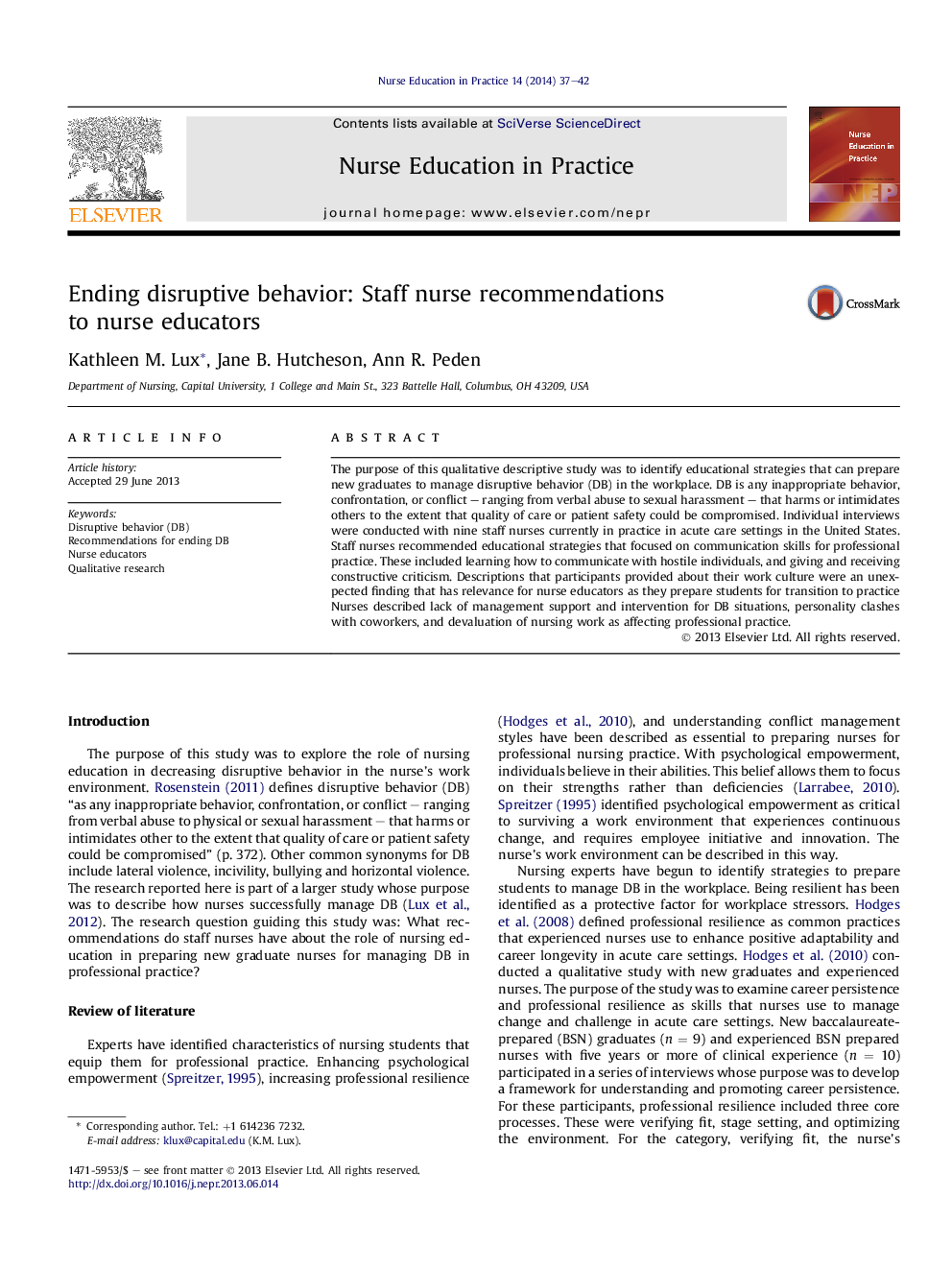| Article ID | Journal | Published Year | Pages | File Type |
|---|---|---|---|---|
| 367090 | Nurse Education in Practice | 2014 | 6 Pages |
The purpose of this qualitative descriptive study was to identify educational strategies that can prepare new graduates to manage disruptive behavior (DB) in the workplace. DB is any inappropriate behavior, confrontation, or conflict – ranging from verbal abuse to sexual harassment – that harms or intimidates others to the extent that quality of care or patient safety could be compromised. Individual interviews were conducted with nine staff nurses currently in practice in acute care settings in the United States. Staff nurses recommended educational strategies that focused on communication skills for professional practice. These included learning how to communicate with hostile individuals, and giving and receiving constructive criticism. Descriptions that participants provided about their work culture were an unexpected finding that has relevance for nurse educators as they prepare students for transition to practice Nurses described lack of management support and intervention for DB situations, personality clashes with coworkers, and devaluation of nursing work as affecting professional practice.
